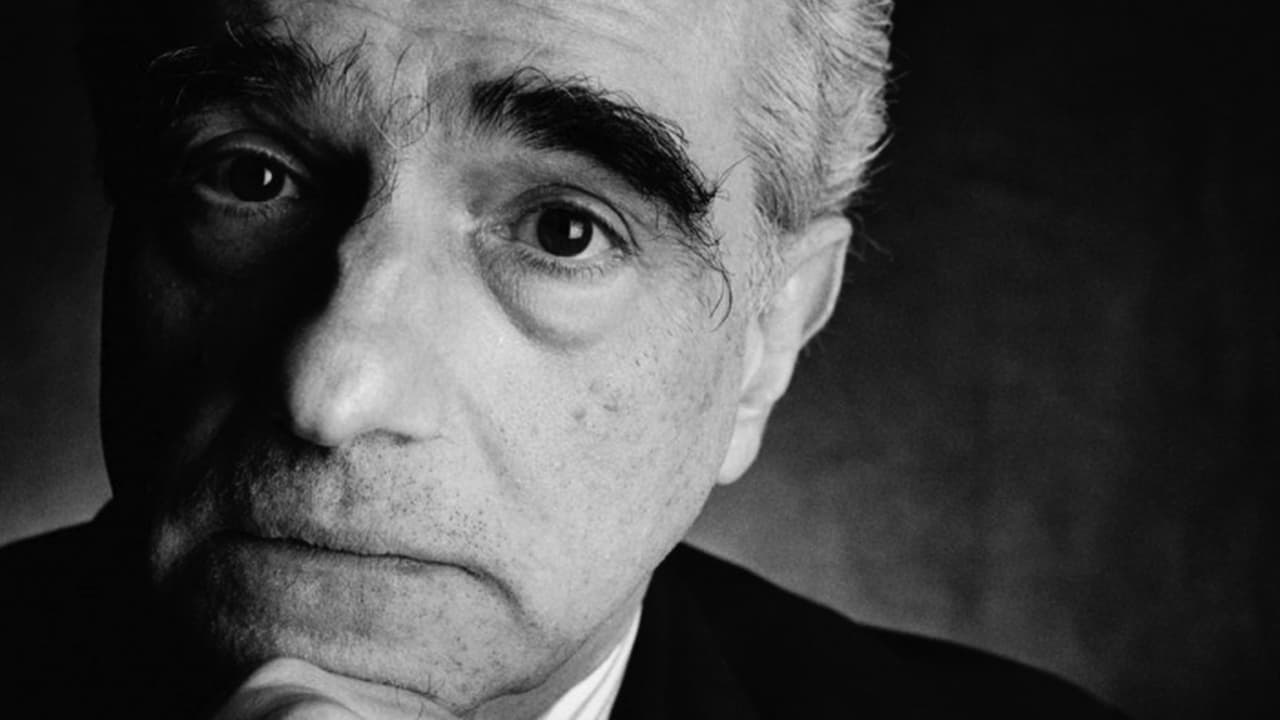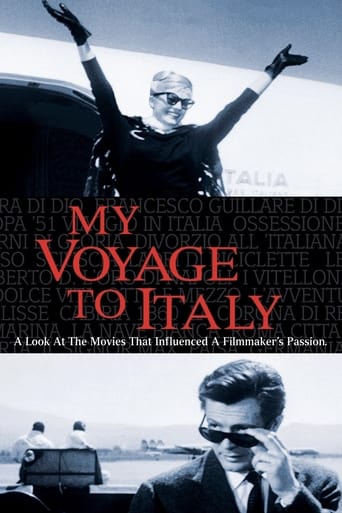

"My Voyage to Italy" is a great film if you are trying to look into the mind of Martin Scorsese or if you are a film student. He talks very candidly about himself and about his adoration of Italian movies and is wonderful for his dedication to film preservation and appreciation. However, if you want to learn about some great Italian films so you can watch them yourself, "y Voyage to Italy" also has a few problems. It isn't a complete overview of great Italian films but a look at Italian films that Scorsese loves and the films ONLY covers a couple decades of cinema. Therefore, it is not exhaustive and many wonderful films from this same period (about 1943 to the mid-1960s) are omitted. And, most importantly, Scorsese not only talks about the films but divulges ALL the endings and twists and meaning--possibly ruining the viewing experience for anyone looking to follow his recommendations for great films to watch. Now all this does not seem like enough that you should completely avoid his film--there are some interesting insights into the films and Scorsese's mind. Just be aware of all this before you decide to watch--it could spoil your chance to experience the films without preconceptions and too much information.As for me, I mildly enjoyed it but was saddened that some of Vittorio De Sica's best films were not even mentioned (probably because he is my personal favorite of these directors). While "The Bicycle Thief" is perhaps his most famous film he directed and I did love Scorsese's discussion of "Umberto D.", the much lesser known and earlier "The Children Are Watching Us" is, in my mind, his very best--and it's an incredibly brave film that predated the ones discussed in "My Voyage to Italy". Now I cannot blame Scorsese for not mentioning it--the film has only recently been re-released by Criterion. An additional film, though, that he should have seen but didn't mention was "Miracle in Milan"--a film that combines wonderful Neo-Realism with the Surrealism that Fellini was known for--but MUCH earlier in the history of Italian cinema. It is brilliantly quirky. Likewise, I would have loved a discussion of Fellini's films between "I Vitelloni" and "La Dulce Vida"--as films like "La Strada" and "Nights of Cabiria" seem oddly absent from Scorsese's discussion.Perhaps I am too picky--especially since I have seen most of the films he discusses. And, perhaps I am too critical because of my adoration of foreign cinema. Plus, I realize I do have very, very strong opinions! All I know is that I did enjoy the film but really would have preferred a most exhaustive and comprehensive overview--but it would have probably lasted 10-12 hours or more! When they bring out some film like this, please let me know!
... View MoreIntense and prolific filmmaker Martin Scorsese did not seem to be satisfied with projecting the influence he drew from Italian films from the 1940s, '50s, and '60s on his own films. So, he spends four solid hours explaining the details and expressions of at least thirty films, all condensed into about ten minutes each. He analyzes and discloses trivia about each of them and pours out all of his passion into this like water bore over his shoulders that he can't bear anymore.For awhile, I was wondering why he would spend so much time doing this. Why make a movie wherein most of the footage is taken from other movies? Why examine a condensed version of each film from beginning to end when we may want to see these movies ourselves? Well, after awhile, I realized the point of this. Scorsese had a very important reason why he wanted to make this epic documentary. It's because these films are what made him the filmmaker he is, not to mention the person he is, and their effects have not weakened throughout time. So, he wants to perpetuate their lives. He wants to interest younger generations, such as mine, in these films and their makers.And I'll tell you what. It works. I am now very interested in seeing a lot of these movies. I realize I have not seen nearly enough films by Roberto Rossellini, Luchino Visconti, or Vittorio De Sica. And I plan to, thanks to Scorsese's film.
... View MoreA vanity piece, of sorts, that could be retitled "Everything You Ever Wanted to Know About Italian Film History But Were Afraid to Ask...Martin Scorsese." Wonderfully informative, touching and insightful for the first 2 to 3 hours or so, but exhaustive and exhausting after that. Viva Italia, Basta Scorsese!
... View MoreThere are so few people today who are interested in the great films of yesteryear. That's sad on many levels, but one of the more ironic reasons is that many of the directors who are so loved today could not have made the great films they did, had they not been so deeply inspired by the films of the past. Especially by the period of neo-realism in Italian Cinema (1940s-1960s).There's no way anyone could make a bad documentary about this era, since the films themselves have such a strong impact that any clips would be fascinating. But Scorsese has given us his very personal experience of these films, and that gives each of the films some context. Those of us who can remember seeing these films for the first time can relive the experience with Scorsese, exactly as if they were seeing the films for the first time. It also makes one think back on all the most important films in our personal lives. The films that first gave the world dimension, and the films that first made us worship the potential that great cinema has. The main directors featured are Roberto Rossellini, Vittorio De Sica, Lucino Visconti, Michaelangelo Antonioni and Federico Fellini, and Scorsese lovingly takes his time showing us numerous clips from most of their greatest films. I was lucky enough to see this documentary in a cinema, and I hope others will also have that chance. Most of the films featured I'd only seen on video. Some I'd liked a lot, others I loved, but nothing prepared me for the impact of seeing those images on the big screen! But even if you can only catch this on video or DVD, do your best to see it. It's what I call "sacred cinema"!
... View More